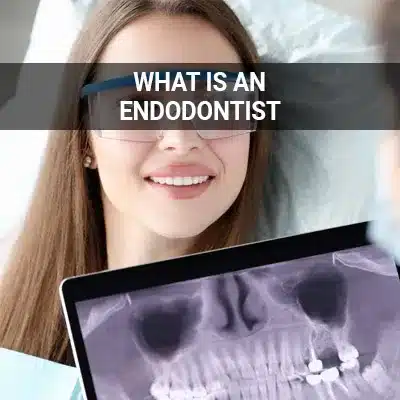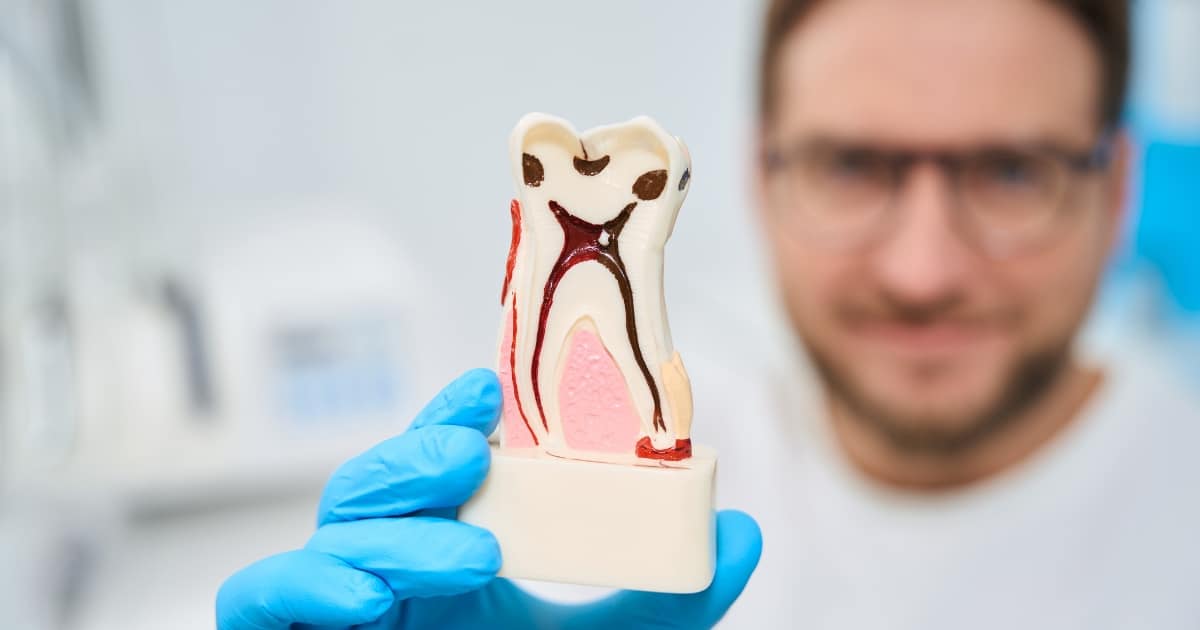
Do I Need a Root Canal, Glendale AZ
Root canals can save or repair teeth that have been damaged by infection or decay. When a tooth does not get needed root canal treatment, the surrounding tissue may become infected and surrounded by abscesses. Root canals consist of removing the inflamed and infected nerve and pulp of the tooth.
Root canals are available at Singh Smile Care - Dentist Glendale, AZ in Glendale AZ and the surrounding area. Do not put off saving your tooth. Call us today at (623) 400-6009 to schedule an appointment and learn more.

Resolving Pain With Root Canals
The dental issues that cause the need for root canals often make patients uncomfortable. At the bare minimum, patients will experience an excruciating toothache. These toothaches may be spontaneous, occurring even when the patient is not using the tooth. Eventually, this may evolve into a severe headache. Many patients often do not make the connection between the toothache and the headache.
A tooth that is still alive will also be sensitive to heat and cold, even after the patient has removed the stimulus. The tooth may be particularly susceptible to heat sensitivity. Patients with teeth that are already dead and have become abscessed will cause pain when the patient chews or otherwise puts pressure on the tooth. Any abscesses may produce swelling or bleeding, even to the point of requiring emergency care.
The underlying causes of root canals can often make patients uncomfortable.
When to See a Dentist About Root Canals
Many different factors may contribute to a patient needing a root canal. These conditions can manifest themselves as various symptoms. These include chips or cracks in teeth, pain while eating or touching the tooth, persistent pain, sensitivity to heat and cold, and swollen gums.
Chips or cracks in the tooth allow empty spaces for bacteria to settle in and cause infection and inflammation, while tooth sensitivity may be a sign of severe decay or nerve damage. In general, toothaches are a sign a patient should see a dentist.
Tooth sensitivity may linger longer when the blood vessels and nerves in the tooth have become infected or damaged. Swelling may also come and go. It is frequently associated with abscesses, which may be accompanied by unpleasant taste and odor.
Infected teeth may also feel looser than healthy teeth, due to nerve death softening the bone. Furthermore, teeth may turn grayish-black when the roots have been damaged and the internal tissue has been broken down.
These conditions can manifest themselves as various symptoms.
When Root Canals Are the Only Option
Root canal treatments are necessary when the pulp of the tooth has become inflamed or infected and needs removal. This may happen due to deep decay, cracks or chips in the tooth, faulty crowns, and repeated dental procedures. Patients should also be warned that facial trauma may still damage the pulp even when the tooth does not have visible chips or cracks. Leaving pulp inflammation or infection untreated may lead to pain or the formation of an abscess.
When left untreated, teeth with damaged pulp eventually die. This can negatively impact your overall oral health, as well as make it difficult to eat and chew. Root canals can help preserve the remaining tooth. The procedure may be followed by the placement of an implant or a crown.
Root canal treatments are necessary when the pulp of the tooth has become inflamed or infected and needs to be removed.
Alternatives to Root Canals
Root canals can help address any issues caused by infection and decay. However, for such treatment to be successful, there must be enough of the natural tooth remaining to save. While it is best to save and maintain natural teeth whenever possible, some teeth may be beyond repair. Teeth with severe fractures or cracks extending below the gum line, for example, may be better suited for extraction.
If extraction is necessary, patients may want to consider getting dental implants. This tooth replacement option looks, feels, and functions like a natural tooth and will help maintain the appearance of the smile. Dental implants consist of artificial tooth roots surgically placed into the jaw to hold an artificial tooth (also known as a crown or pontic) in place. Our team can help determine which option is best for you.
However, for such treatment to be successful, there must be enough of the natural tooth remaining to save.
Questions Answered on This Page
Q. What kind of pain can be addressed by a root canal treatment?
Q. Do I need a root canal procedure?
Q. When are root canal treatments necessary?
People Also Ask
Emergency Root Canals
Since every tooth that requires a root canal is in the process of dying, patients should consider every root canal an emergency procedure.
Frequently Asked Questions
Quality Dental Services Can Transform Your Smile
Dental Terminology
Cosmetic Dentistry
Cosmetic dentistry is generally used to refer to any dental work that improves the appearance (though not necessarily the function) of a person’s teeth, gums and/or bite.
Decay
Tooth decay is when the enamel of the tooth begins to decay and cause erosion from plaque and tartar on the teeth.
Dental Caries
Dental caries are also known as cavities and result from a lack of proper oral hygiene leaving plaque that forms tiny holes in the teeth.
Dental Checkup
A dental checkup is an appointment that involves cleaning the teeth, identifying any signs of infection and removing said signs of infection at least once every six months in the office.
Dental Filling
A dental filling involves restoring the structure of the tooth by using metal, alloy, porcelain or plastic to fill the tooth.
Dental Prophylaxis
A dental prophylaxis is a professional and detailed cleaning that involves the removal of plaque, calculus and stains from the teeth.
Dental Sealants
Dental sealants contain a resinous material that we apply to the chewing surfaces of the posterior teeth to prevent dental caries.
Dentist
A dentist, also known as a dental surgeon, is a doctor who specializes in the diagnosis, prevention, and treatment of diseases and conditions of the oral cavity.
Gingivitis
Gingivitis is the inflammation of gum tissue that results from plaque, other infections in the mouth and poor oral hygiene.
Preventive Dentistry
Preventive dentistry is the dentistry that focuses on maintaining oral health in order to prevent the spread of plaque, the formation of tartar and infections in the mouth.
Tartar
Tartar forms when plaque builds up on the surface of the teeth and calcifies into a hard surface that is much more difficult to remove and will require professional treatment.
Tooth Enamel
Tooth enamel is the protective visible outer surface of a tooth that contains the dentin and dental pulp.








